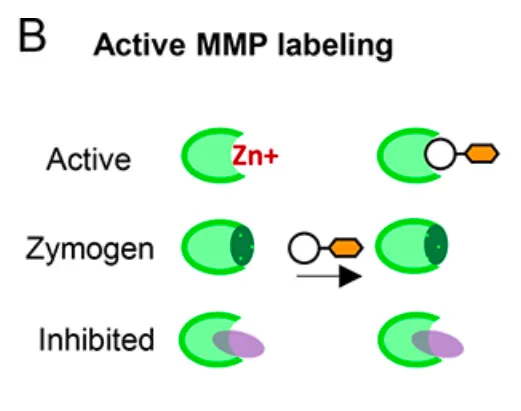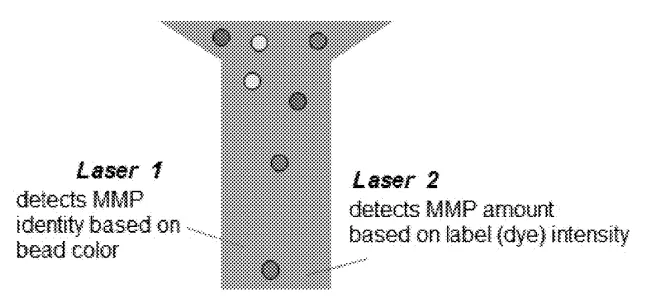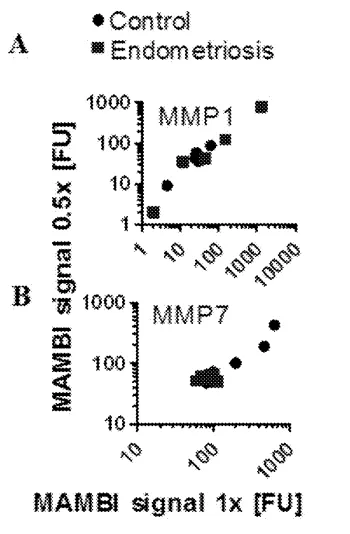Multiplexed Specific Metalloprotease Activity Measurements
This technology is a method of detecting active metalloproteases in biological samples, and has potential applications as a research tool, drug discovery technique, or diagnostic.
Researchers
-
compositions and multiplex assays for characterizing active proteases and their inhibitors
United States of America | Granted | 11,408,885
Figures
Technology
This technology detects active MMPs using a multifunctional probe that binds selectively to the active form of many MMPs and facilitates conjugation to a fluorescent tag through a biotin functional group. The identity of probe-bound MMPs can be detected with commercially available, color-coded beads conjugated to antibodies against specific MMPs. Quantification of the fluorescence from both the probe and beads are then compared to standards of known concentration and used to very accurately determine the concentration of the individual constituent MMPs. The inventors demonstrate that this technology works on samples from cell culture supernatant, menstrual fluid, and peritoneal fluid. Additionally, MMP detection is both sensitive and specific and can accurately detect MMP-1, -2, -3, -7, -9, -10, and -12 at concentrations as low as 100 molecules per microliter of sample. Finally, this technology is can easily be multiplexed, and is compatible with high-throughput screening techniques.
Problem Addressed
Matrix metalloproteases (MMPs) are enzymatic proteins that are important for many physiological roles in development and adulthood. MMPs are an attractive diagnostic and therapeutic target because MMP expression and activity is dysregulated in many diseases including cancer, cardiovascular disease, endometriosis, pre-eclampsia, and arthritis. However, detection of MMP activity remains a challenge. Current technologies often fail to differentiate between active and inactive forms, require large sample sizes, and only detect single MMPs at a time. This technology is a simple, multiplexed solution to detect MMP activity.
Advantages
- Accurate MMP detection with small sample input (as little as 1 µL)
- Multiplexed, simultaneous detection of MMPs
- Highly sensitive and specific. Can detect as low as 100 attomoles analyte
- Simple system using many commercially available reagents
- Compatible with high throughput screening for MMP drug discovery
Publications
Ahrens, C. C., et al. (2019). Development and Application of the Metalloprotease Activity Multiplexed Bead-Based Immunoassay (MAMBI). Biochemistry, 58(38), 3938-3942. https://doi-org.ezproxy.canberra.edu.au/10.1021/acs.biochem.9b00584.
License this technology
Interested in this technology? Connect with our experienced licensing team to initiate the process.
Sign up for technology updates
Sign up now to receive the latest updates on cutting-edge technologies and innovations.


